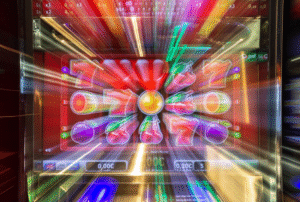
Digital games have long since become more than mere leisure activities. They have evolved into an integral part of modern daily life — small rituals interwoven between work, communication, and relaxation. Experiences such as the razorshark slot illustrate how playful behavior can gradually transform into habit. Each round, each spin, each visual movement creates a familiar signal that the brain records and stores. Over time, a spontaneous impulse solidifies into a fixed pattern — a psychological loop of stimulus, response, and reward.
In neuroscience, this process is known as the habit loop, a structure composed of three stages: trigger, routine, and reward. When a person performs the same action repeatedly and receives a positive outcome, the neural connection strengthens. With each repetition, the reaction becomes more automatic, faster, and less conscious. Within digital games, this mechanism is strikingly evident: the sound of a spin, the brief flashes of light, or the moment of anticipation activate the same neural circuits as everyday habits — from reaching for one’s smartphone to taking the first sip of coffee in the morning.
What is fascinating is that such routine is not inherently negative. It provides security and orientation in a world of constant overstimulation. The brain loves predictability because it conserves energy. Habits offer stability — they structure both time and attention. Yet they can also alter perception: what was once exciting and new gradually becomes taken for granted. The gaming experience shifts from conscious choice to automatic behavior.
From a psychological perspective, this creates a paradox. Humans seek novelty and excitement, yet they feel most comfortable within familiar patterns. Games exploit this tension perfectly: they establish recognizable routines but vary them just enough to remain engaging. This subtle dynamic — repetition with variation — lies at the heart of modern game design philosophy. It keeps the brain in a state of gentle stimulation without tipping into stress.
Routine in digital environments is therefore no coincidence, but a finely balanced interplay between perception and reward. Developers often refer to this as emotional timing — small, targeted moments of feedback that maintain equilibrium between tension and satisfaction. The sound of success, the brief glow of a symbol — these are micro-emotional triggers that foster trust. Players enter a flow state when this rhythm feels just right.
Yet routine also carries a cultural dimension. It reflects an era in which repetition signifies safety. In a constantly changing world, people seek moments of reliability. Games provide precisely that — a controlled form of uncertainty. You don’t know how the next spin will turn out, but you know that it will come. This predictable unpredictability forms the psychological core of gaming: an interplay between control and chance, structure and excitement.
Interestingly, gaming routines resemble the rituals that once created social bonds in traditional cultures. Rituals were never about repetition alone but about meaning. Digital rituals can fulfill a similar function. They create moments in which individuals pause, focus, and emotionally recalibrate. In this sense, they represent a modern form of rhythm — an attempt to find order amid chaos.
However, the challenge lies in maintaining awareness. Routine should not become trance. When play becomes pure automatism, it loses its emotional essence. Conscious play involves reflecting on one’s own motivation: Why am I playing? Am I seeking excitement, distraction, control, or calm? Such questions transform routine into mindfulness. The act of play then ceases to be a mere habit and becomes a form of self-observation.
On a societal level, this phenomenon demonstrates how closely technology, psychology, and behavior intertwine. Digital platforms are not merely tools of entertainment — they are part of our cognitive environment. They shape how we allocate attention, how we manage anticipation, and how we experience relief.
Ultimately, routine in gaming reveals a profound human truth: we are creatures of habit, but not machines. We seek repetition to feel safe, and variation to feel alive. When both forces are balanced, the state psychologists call flow emerges — a condition of focused calm. In this sense, the Razor Shark slot is more than just a game: it is a symbol of modern life — of the constant oscillation between awareness and automatism, between freedom and habit.





Leave a Reply